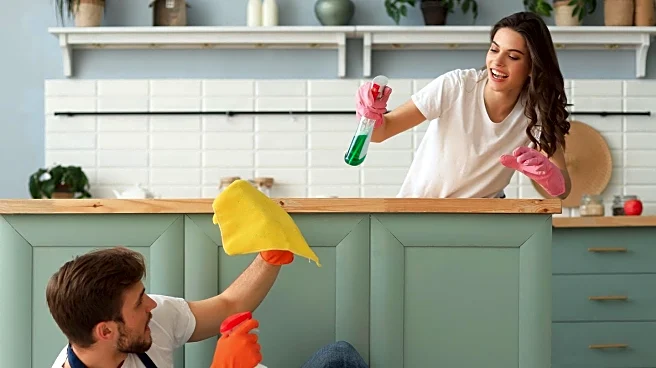What is the story about?
What's Happening?
A husband has expressed frustration over his wife's criticism of his housework, which he feels contributes to an imbalance in their shared mental load. The husband acknowledges that his wife shoulders more of the mental burden than either of them desires, but he finds her insistence on specific ways of doing tasks, such as organizing groceries, demotivating. Despite their efforts to communicate directly, they remain stuck in a dynamic where both feel wronged. The husband seeks advice on overcoming this impasse, as he feels unable to do anything right, while his wife feels overwhelmed by her responsibilities.
Why It's Important?
This situation highlights a common issue in domestic partnerships where the division of labor and mental load can lead to tension and dissatisfaction. The husband's experience underscores the broader societal challenge of balancing household responsibilities equitably. It reflects the need for effective communication and compromise in relationships to prevent resentment and burnout. The story also touches on the concept of 'mental load,' which refers to the cognitive effort involved in managing household tasks, often disproportionately borne by women. Addressing these dynamics is crucial for fostering healthier, more equitable partnerships.
What's Next?
The couple may consider seeking couples counseling to address their communication issues and find a more balanced approach to sharing household responsibilities. They could also explore strategies such as dividing tasks more equitably and respecting each other's methods of completing them. This approach may help alleviate the wife's mental load and reduce the husband's feelings of inadequacy. As they work towards a solution, they may need to reassess their expectations and prioritize open, empathetic dialogue to achieve a more harmonious domestic environment.
Beyond the Headlines
The situation raises questions about societal expectations and gender roles in domestic settings. It challenges the traditional notion that women should manage household tasks and highlights the importance of shared responsibility. The story also suggests that underlying relationship issues may manifest in disagreements over seemingly minor tasks, indicating a need for deeper introspection and understanding between partners.

















